How to Measure a Horse's Weight
Updated on 04/26/24
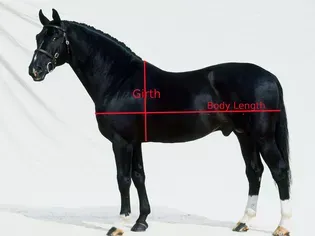
Unveil the Hidden Depths: A Comprehensive Guide to Measuring a Horse's Weight
Determining the weight of a horse is not as straightforward as it may seem. Unlike humans, horses cannot simply step onto a scale. Instead, we must rely on various methods to estimate their weight with accuracy.
In this comprehensive guide, we will delve into the intricacies of horse weight measurement, exploring the most effective techniques, providing practical examples, and addressing common challenges encountered along the way.
Methodologies for Measuring Horse Weight
1. Weight Tape: A Simple and Portable Approach
Weight tapes are a convenient and widely used tool for estimating horse weight. These tapes are designed to measure the girth circumference of the horse, which is the distance around the widest part of the barrel behind the elbows.
* How to Use: Wrap the tape snugly around the horse's girth, ensuring it is parallel to the ground. Record the measurement in centimeters or inches.
* Accuracy: Weight tapes provide an approximate estimate of weight, with an accuracy range of approximately ±10%.
* Example: A horse with a girth circumference of 76 inches would have an estimated weight of approximately 1,000 pounds using a weight tape.
2. Weigh Sling: Precision Measurement with a Hanging Scale
Weigh slings are the most accurate method for determining a horse's weight. They involve suspending the horse from a crane or hoist and measuring the weight using a scale.
* How to Use: The horse is gently lifted into the sling, and the scale reading is recorded.
* Accuracy: Weigh slings provide highly accurate weight measurements, with an accuracy margin of less than 2%.
* Example: The weigh sling scale displays a weight of 1,250 pounds for a horse suspended in the sling.
3. Heart Girth Formula: A Convenient Estimation Technique
The heart girth formula is a commonly used method for estimating horse weight based on body measurements. The formula takes into account the horse's heart girth and body length.
* Formula: Weight (kg) = (Heart Girth² × Body Length) / 11,900
* Example: For a horse with a heart girth of 80 inches (203 cm) and a body length of 60 inches (152 cm):
Weight (kg) = (203² × 152) / 11,900 = 524.5 kg (approximately 1,156 pounds)
4. Body Condition Scoring: Assessing Fat Coverage
Body condition scoring (BCS) is a qualitative method for evaluating a horse's fat reserves and body condition. A horse's BCS can provide insights into its overall health and weight status.
* How to Use: The horse's body is visually examined and palpated to assess fat coverage along specific anatomical landmarks.
* Accuracy: BCS is not a direct measurement of weight but can indicate whether a horse is underweight, overweight, or at a healthy weight.
* Example: A horse with a BCS of 5 (ideal weight) has moderate fat coverage, with ribs easily felt but not visible, and a smooth, rounded topline.
Factors Influencing Horse Weight
The weight of a horse is influenced by several factors, including:
* Breed and Type: Different breeds and types of horses have varying average weight ranges.
* Age: Horses generally gain weight as they mature, reaching their full weight in their prime years.
* Nutrition: Adequate nutrition and a balanced diet are essential for maintaining a healthy weight.
* Exercise and Activity Level: Physical activity can influence a horse's weight, with higher activity levels leading to weight loss.
* Health Status: Underlying health conditions can affect a horse's weight, such as metabolic disorders or gastrointestinal issues.
Challenges in Horse Weight Measurement
Accurately measuring a horse's weight can be challenging due to various factors:
* Temperament: Some horses may become agitated or uncooperative during weighing procedures.
* Environment: Weighing conditions, such as temperature and humidity, can affect a horse's weight due to water retention or evaporation.
* Equipment Errors: Improper calibration of equipment, such as weight tapes or scales, can lead to inaccurate readings.
* Observer Bias: Variations in estimation techniques or observer experience can influence weight measurements.
Overcoming Measurement Challenges
* Use multiple methods for cross-referencing and improving accuracy.
* Ensure that equipment is properly calibrated and used correctly.
* Handle horses calmly and patiently during weighing procedures.
* Consider environmental factors that may affect weight, such as extreme temperatures.
* Seek guidance from experienced professionals, such as veterinarians or equine nutritionists, for accurate weight assessment.
Conclusion
Measuring a horse's weight is an essential aspect of health management and performance optimization. By understanding the various methods and factors involved, horse owners and caretakers can effectively determine a horse's weight, monitor its health, and make informed decisions regarding nutrition and care.
Explore More Pets

Pony Breeds
The Difference Between Horses and Ponies

Horse Diseases & Conditions
What Do I Do If My Horse Colics?
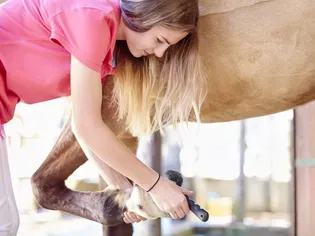
Pony Breeds
Horse and Pony Care by the Day, Week, Month and Year
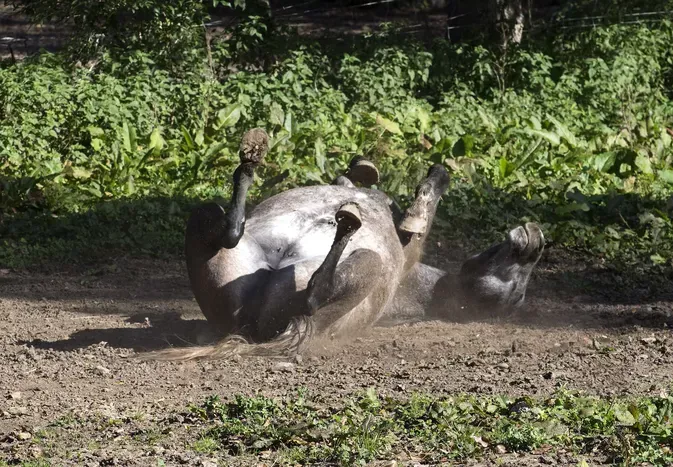
Horse Grooming
Mange in Horses
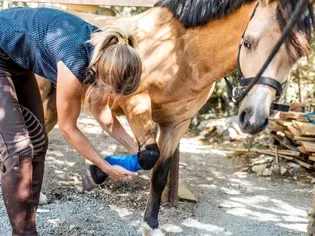
Horse Diseases & Conditions
Grease Heel in Horses
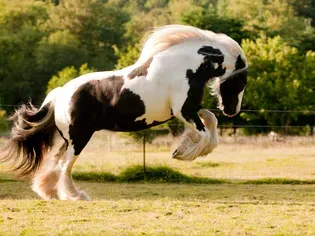
Light Horse Breeds
Gypsy Vanner Horse Breed Profile

Horse Diseases & Conditions
Girth Galls and Saddle Sores
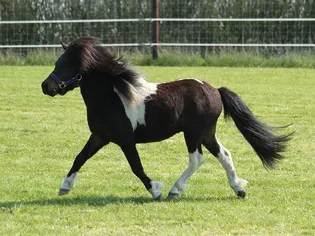
Pony Breeds
Shetland Pony Breed Profile